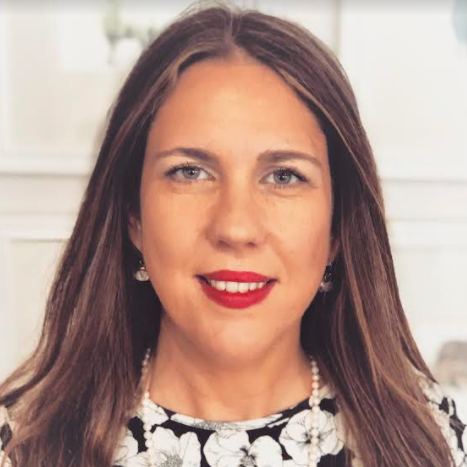The Roots of Lutheran Education

By Anna Martin
The classical model of education goes hand in hand with a robustly Lutheran doctrine of human nature.
Over recent years, classical education has gained significant popularity with Christian teachers, parents, and homeschoolers. There is growing disillusionment among them with the ever-changing progressive models of education, and a renewed appreciation for the enduring lessons of the Great Books, the foundation of Western culture, the crucial importance of independent thinking, and the lasting benefits of the classical model. Christian parents are reevaluating the content that their children are being fed in school, and they recognize—now more than ever—the need for both lower and higher educational institutions that uphold the Biblical worldview.
This resurgence of interest in, and increasing “buzz” about, classical education is also occurring in Lutheran schools, an increasing number of which are adopting the classical model. The Consortium for Classical Lutheran Education (CCLE) is leading the effort to restore this time-tested model of education in our Lutheran schools. And now, more Lutheran educators are understanding the value of the pedagogy and principles reinforced by the classical liberal arts.
Simultaneously, an increasing number of Lutheran schools are returning more intentionally to their confessional roots, both theologically and liturgically. Lutherans have a rich educational and theological heritage, one that lives today and that holds great promise for the future. The desire to reclaim a distinctly historical Lutheran identity has emerged within a growing number of parochial schools within the Lutheran Church—Missouri Synod, in which Lutheran hymnody, liturgy, prayers, and creeds are integral to daily school life. In many cases, the confessional commitment of these schools goes hand-in-hand with their adoption of the classical model, both of which reflect the principle of ad fontes in a return to ancient, medieval, and Reformation roots.
Classical Lutheran education can be defined as the classical liberal arts with Lutheran catechesis. Dr. Gene Edward Veith has written that “The liberal arts can equip a child for effective service in the world; catechesis can equip a child for everlasting life.” The liberal arts cultivate the student’s mind and character with academic rigor, tools for learning, and formative content; Lutheran catechesis instructs and nurtures matters of the soul through the Holy Scriptures, the Lutheran confessions, and the liturgy and hymnody of the Church. With the seven liberal arts, and the Small Catechism’s Six Chief Parts, classical Lutheran education prepares servant-leaders for the home, the Church and the world.
Faith looks to the word and the promise; that is, to the truth.
Martin Luther
The classical Lutheran educator understands that Western civilization is unique in its view of mankind as fallen image-bearers of God, and strives accordingly to preserve and restore its eroding foundations. In keeping with Western thought, the classical Lutheran educator holds that absolute truth is not relative and is not self-generated. Truth is knowable. With its roots in Western civilization, classical Lutheran education counteracts the moral confusion, spiritual delusion, and cultural upheaval that stem from the relativistic postmodern view.
Classical Lutheran education is founded on the Word of God, acknowledges God as the source of all knowledge, and establishes Scripture as the foundation on which to build this knowledge. It upholds Christ as Logos—the unifying principle of knowledge, wisdom, and virtue. This logocentrism marries perfectly, even essentially, with the high Christology of confessional Lutheranism, the right handling of Scripture, and the theology of the Cross. It also contrasts starkly with the self-aggrandizement of progressive education that positions the self at the center in place of God.
Classical Lutheran education rejects the ever-evolving manipulations of behavioral psychology, the winds of every false teaching, and the lies of moral relativism, to embrace the transcendental, timeless truths of Scripture. And because Scripture is foundational to classical Lutheran education, it is imperative that sound doctrine be unwaveringly upheld within our schools.
In sum, classical Lutheran education embodies both the sound doctrine and the educational model that are essential to training up our children in the faith and cultivating in them wisdom and virtue, a love of learning, sound reasoning, and a saving knowledge of the Word. If our doctrinal foundation is not strong, the Scriptures will not be supreme in our schools, and our students will not be equipped to confess and defend the Gospel of Jesus Christ. It is imperative that classical Lutheran educators value above all else the sound teaching of the Scriptures. In the words of Martin Luther’s own pastor in Wittenberg, Johannes Bugenhagen, “If you know Jesus well, it is sufficient, if you do not know other things. If you do not know Jesus, it is nothing, if you learn other things.”
__________________________________________________________________________________
Anna Martin is the executive director of the Consortium for Classical Lutheran Education. She also serves as director of recruitment and admissions at Faith Lutheran School in Plano, TX. She has master’s degrees in modern history from Leeds University, United Kingdom, and in government administration from the University of Pennsylvania. She has worked for the Foundation for Individual Rights in Education, defending individual rights at America’s colleges, and was the founder and executive director of a large classical homeschooling campus in northern Virginia. Originally from England, Mrs. Martin has lived in the United States for over twenty years; she currently resides with her husband and three daughters in the Dallas area.
If you enjoyed this essay, you might like some of our other material here at the Journal, like this discussion of how to teach poetry or this student essay on the role of music in education. And don’t miss our weekly podcast, Anchored, hosted by our founder Jeremy Tate.